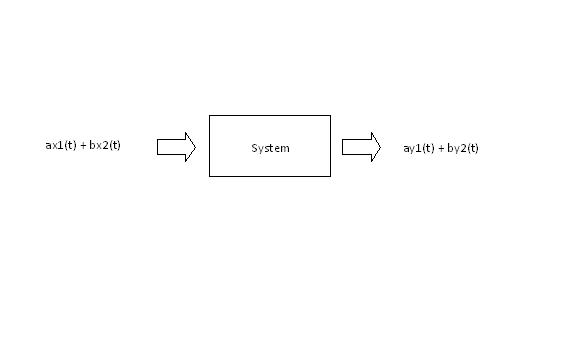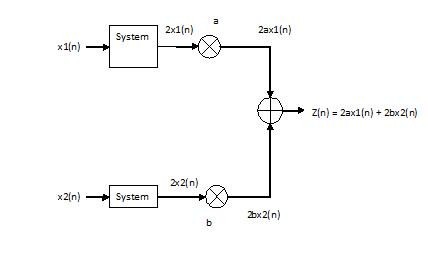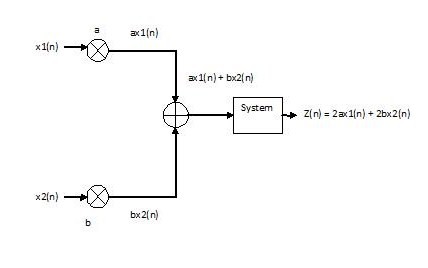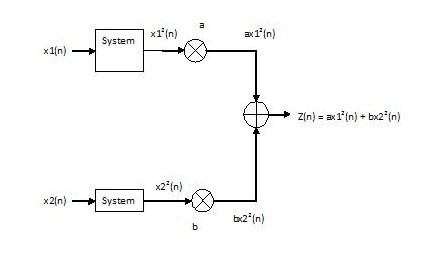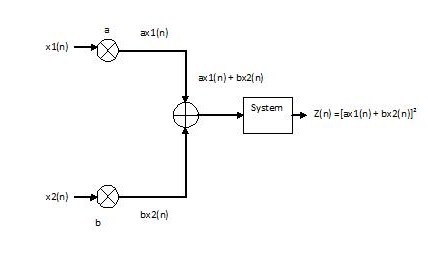(→Non-Linear System) |
(→Non-Linear System) |
||
| (One intermediate revision by the same user not shown) | |||
| Line 29: | Line 29: | ||
[[Image:System3_ECE301Fall2008mboutin.jpg]] | [[Image:System3_ECE301Fall2008mboutin.jpg]] | ||
| + | |||
| + | [[Image:System4_ECE301Fall2008mboutin.jpg]] | ||
| + | |||
| + | |||
| + | This system is not linear because <math>ax_1^2(n) + bx_2^2(n) \neq [ax_1(n) + bx_2(n)]^2 </math> | ||
Latest revision as of 14:45, 11 September 2008
Linearity
In my own words, a linear system is a system in which superposition applies. For example, if two inputs x1(t) and x2(t) are applied to the system, the output of the system will the sum of the responses to both inputs, y(t) = y1(t) + y2(t).
For example,
x1(t) + x2(t) $ \rightarrow $ system $ \rightarrow $ y(t) = y1(t) + y2(t)
Linear System
x[n] $ \rightarrow $ system $ \rightarrow $ y[n] = 2x[n]
Proof:
Based on Prof Mimi's definition 3 of Linearity, since the system produces the same output for both cases, the system is linear.
Non-Linear System
x[n] $ \rightarrow $ system $ \rightarrow $ $ y[n] = x[n]^2 $
Proof:
This system is not linear because $ ax_1^2(n) + bx_2^2(n) \neq [ax_1(n) + bx_2(n)]^2 $

